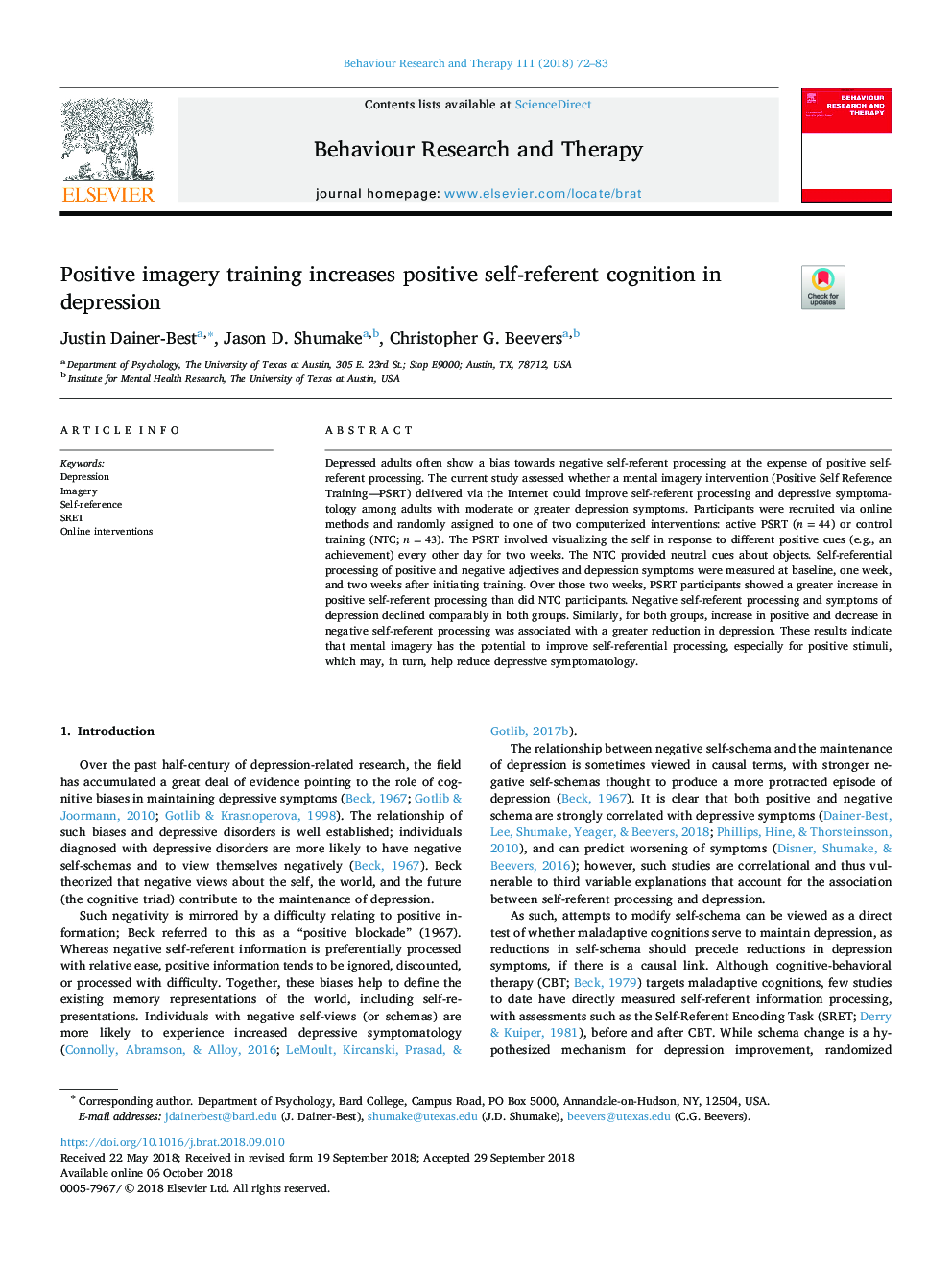| Article ID | Journal | Published Year | Pages | File Type |
|---|---|---|---|---|
| 11263342 | Behaviour Research and Therapy | 2018 | 12 Pages |
Abstract
Depressed adults often show a bias towards negative self-referent processing at the expense of positive self-referent processing. The current study assessed whether a mental imagery intervention (Positive Self Reference Training-PSRT) delivered via the Internet could improve self-referent processing and depressive symptomatology among adults with moderate or greater depression symptoms. Participants were recruited via online methods and randomly assigned to one of two computerized interventions: active PSRT (n=44) or control training (NTC; n=43). The PSRT involved visualizing the self in response to different positive cues (e.g., an achievement) every other day for two weeks. The NTC provided neutral cues about objects. Self-referential processing of positive and negative adjectives and depression symptoms were measured at baseline, one week, and two weeks after initiating training. Over those two weeks, PSRT participants showed a greater increase in positive self-referent processing than did NTC participants. Negative self-referent processing and symptoms of depression declined comparably in both groups. Similarly, for both groups, increase in positive and decrease in negative self-referent processing was associated with a greater reduction in depression. These results indicate that mental imagery has the potential to improve self-referential processing, especially for positive stimuli, which may, in turn, help reduce depressive symptomatology.
Related Topics
Health Sciences
Medicine and Dentistry
Psychiatry and Mental Health
Authors
Justin Dainer-Best, Jason D. Shumake, Christopher G. Beevers,
